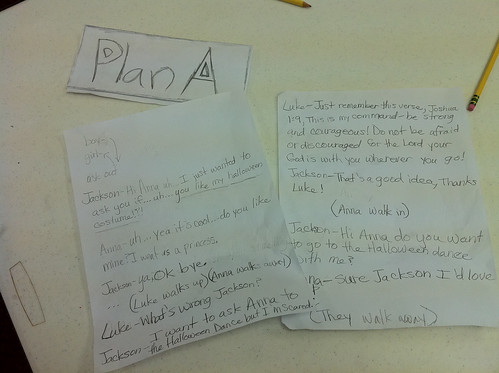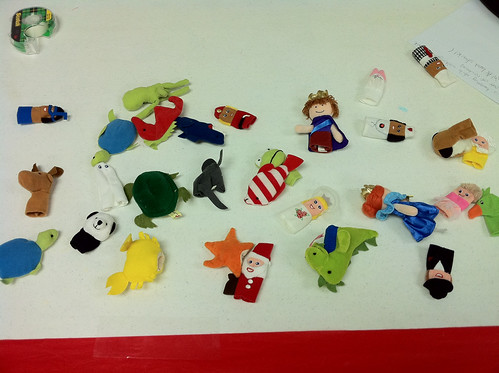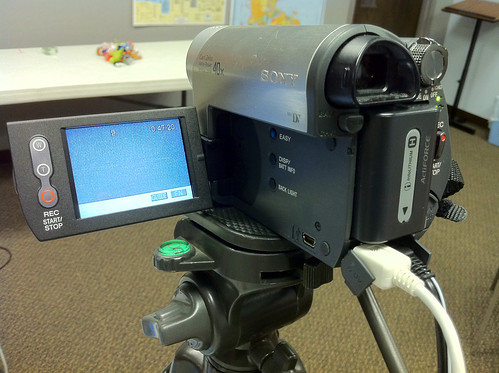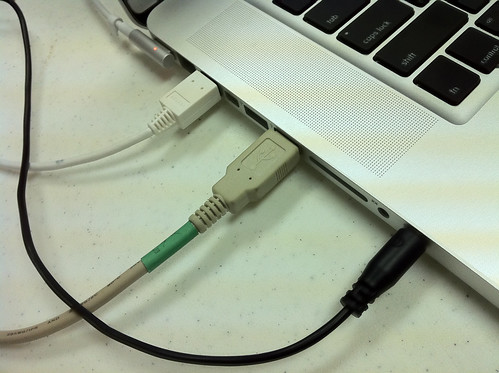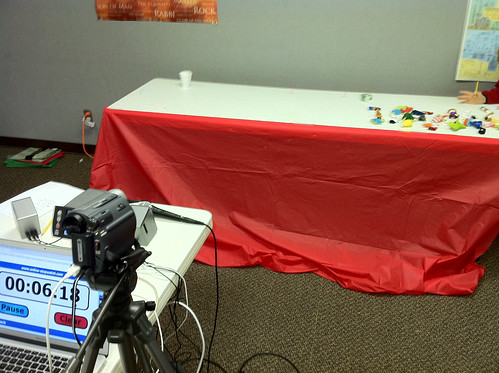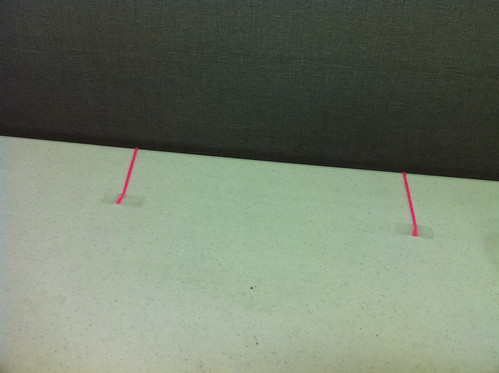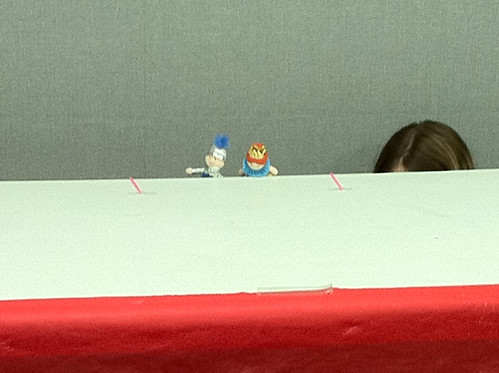Lessons Learned from Finger Puppet Theater on Vimeo
This past weekend for the 5th grade Sunday school class I co-teach, I helped students create short (approximately 60 second) finger puppet skits which we videoed and posted online to our class blog. I’ve done this kind of project from time to time the past three years I’ve taught this class, and in this post I’ll share some of the technical lessons learned from past iterations as well as this past weekend. These videos are all short and a bit silly, but they provide a great way for students to be creative and demonstrate some independent thinking based on the ideas we’ve been discussing in class. In addition to those cognitive benefits, they are also a lot of FUN to make and watch together afterwards, and that’s always a big plus when it comes to classroom learning.
Lunch Money from Blast Cast on Vimeo.
Over the past few years I’ve experimented with various sites and methods for sharing media, and a class blog continues to be a favorite platform. For this weeks’ videos, I decided to create a new (free) channel on Vimeo and post our videos there. Everything worked out fine, but it did take about 3.5 hours for the videos to transcode / convert on the site since I have a free account and don’t plan to upgrade at this point to “Vimeo Pro.” Unlike YouTube, which transcodes videos immediately and usually as you upload, free Vimeo accounts are handicapped by design to encourage upgrades. This isn’t a big deal, but means you have to put up with a little delayed gratification in sharing your videos with others as soon as you upload them. Planning is key. Attendance in our class is irregular for many students, so I’ve found it’s important to have a self-contained lesson that usually builds on concepts from prior weeks, but doesn’t require “work” from the previous or subsequent Sunday. I gave the kids ten minutes to plan their finger puppet skits with a partner and write down some kind of script or storyboard. We have created different kinds of videos a few other times this year, so it also helped that we’ve practiced this kind of partner work and quick production / recording workflow.
Kids love puppets and finger puppets. I picked up two new sets for something like $10 at Ikea over the Christmas holidays, so it was fun to have so many different choices for the students to choose from this week. I’ve found it’s good to let students look at the puppets, but not take them back to their seats during their planning time. If they do, they tend to get more distracted and be less successful writing down their plan.
I’ve tried doing these kinds of videos with DV cameras and fancier (XLR) microphones, as well as just iPhones and programs like StoryRobe. This week I opted for the “full on equipment” option, because with finger puppets you want to zoom in and audio quality is REALLY important. I used an older DV camcorder I picked up a few years ago for $150 at a local pawn shop, but since I have a newer MacBook Pro I had to use a firewire “small male plug” (I don’t remember the pin out) to Firewire 800 cable.
Audio-wise, I used my M-Audio Mobile Pre to connect a Shure PG-58 XLR mic to my computer via USB, with a longer extension cord which could reach from the laptop table under the table which served as the “puppet theater stage.” Since we had girls in dresses, I also taped a plastic tablecloth in front for privacy, which was a good thing I hadn’t thought to do in previous lessons. 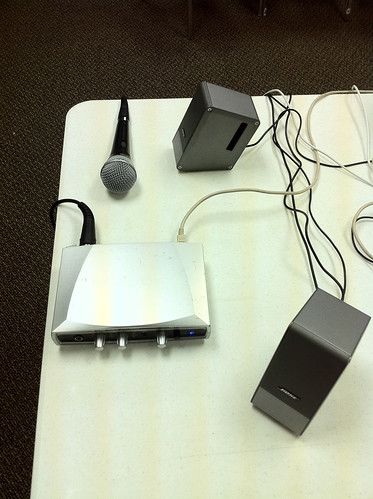
For the actual “stage” where the students record their finger puppet shows, I’ve found it’s handy to tape some yarn just outside the visible frame of the camera after it’s all setup on the tripod and zoomed in like I want it. This provides an easy way for the students to know if their finger puppets are “on stage” or “off stage,” as long as someone doesn’t bump into the tripod and mess up this PRECISE setup!
Last of all, I recorded these directly on the laptop using QuickTime Pro 7. It’s still available as an optional install when you customize a Mac OS X 10.6 clean install. I like the editing / trimming options available in that version, but for most videos we’re able to simply web-post them “as is” without editing. I always love to find ways to publish some kind of student-created media which we create in our class every few weeks, in the hope that it will catalyze some conversations between students and their parents when they get home about “what we talked about in Sunday school.” At the very least, for parents who are interested, it provides a way for them to get a virtual “window” into some of the topics we’ve been discussing and ask their children about those things. Conversations are an important key to learning! Creative fun also helps too! Have you tried creating and sharing finger puppet videos with your students? I like how this activity naturally invites students to get creative, be more expressive with their voice as they take on different roles, and takes away many of the fears both parents and kids have about web-posting student created media since the only “images” on-screen and online are those of the finger puppets. 🙂 One of my student teams (they worked in pairs) recorded their video in Korean, and I don’t have an English translation yet. They had some trouble translating what they wrote down in Korean into English, so I just encouraged them to record in Korean. I’ve reached out to a few people for help on this, but don’t have a translation yet. If you can assist, please let me know!
Cross-posted from Moving at the Speed of Creativity
Technorati Tags: 5th, church, creativity, grade, learning, presbyterian, record, school, vimeo, puppet, finger, sunday, fifth, joshua
